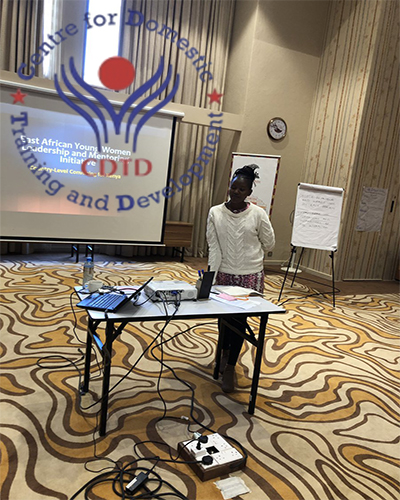- Program: Domestic Training
- Location: Nairobi, Kenya
- Facilitator:CDTD
- Catetory: All-round Training
- Period:1 Month
- Topic:Home management
Information
Training Programs
Besides Skills Development/Capacity Building in Homecare Management{includes units as cookery, home nursing, childcare, housekeeping, pest management, waste disposal, life skills, and Entrepreneurship} we also provide Labour or employment rights education & job placement services that entail enabling the participants to negotiate for decent terms of service, and provide Reproductive Health Education, including sensitization on Family Planning, plus education on HIV/AIDS & SGBV prevention and intervention, and facilitating access to Guidance and Counseling on a needs basis. The training is institutional-based and community-based. The community-based training centers are known as ‘homecare hubs’ and are located across 10 neighborhoods in Nairobi.
CDTD also facilitates access to opportunities to continue with formal education for Domestic Workers who may have missed out, and who are interested in academic development. We train over 1,000 female domestic workers in homecare management annually. In line with CDTD’s motto “Educate a Girl, Build a Nation” the education component provides primary, secondary, tertiary, and vocational training sponsorship for beneficiaries into the mainstream educational system from the shelter program. The shelter benefits approximately 80 beneficiaries annually. Life skills, labor rights, human rights, awareness creation activities relating to GBV, SRH, etc. and community outreach are embedded across CDTD’s programs.
Course Curriculum consists of the following:
1). Homecare management which comprises:
- Housekeeping
- Childcare
- Laundry work
- Home nursing
- Pet management
- Household waste disposal
- Cookery
2). Support areas:
- Pre-departure training (optional but mandatory for workers going to work in foreign countries)
- Life skills
- Labor relations
- Reproductive Health
3). Language
- Arabic for those destined to foreign destinations/countries
- Basic English for those who cannot read or write

